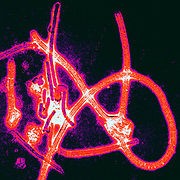
Guinea has been declared free of the Ebola virus for the first time since March 2014. It is the last of the three West African countries that were hardest hit by the outbreak to be declared clear of infection.
To earn this designation, Guinea had to go 42 days since the last case of Ebola tested negative for the virus. This is twice as long as the 21-day incubation cycle of the virus. Guinea will now be in a 3-month-long period of high surveillance because the virus can still emerge. Ebola re-emerged twice in Liberia after that country declared itself free of it
The West African outbreak of the deadly and highly infectious viral disease is thought to have begun in Guinea in December 2013 in a case that was not correctly diagnosed, but the start of the epidemic is considered to be March 2014.
The Ebola outbreak has killed more than 11,000 people and sickened more than 28,000 others in 10 countries around the globe, according to the World Health Organization. The virus crossed borders in West Africa easily before the severity and extent of the outbreak was recognized. People with Ebola ended up traveling to Europe and North American before being diagnosed, which spread fear of the epidemic around the planet.
Guinea will celebrate the end of the outbreak with a concert in Conakry, the capital. But, many Guineans are grieving the many friends and relatives that they lost.
However, it is now known that the virus can survive in certain parts of the body, including the eye, central nervous system, and testes, for many months after an Ebola survivor tests negative. This is what caused the resurgences of the virus in Liberia after it was declared free of Ebola. There have been several documented sexual transmissions of the virus, but in other resurgent cases the method of transmission is not known.



